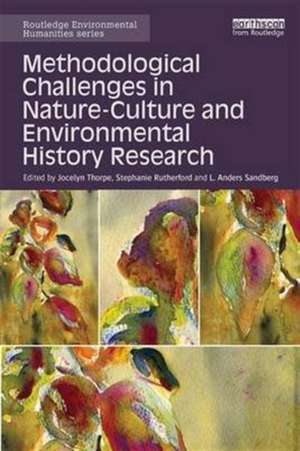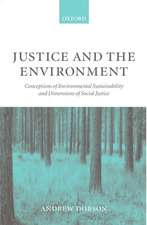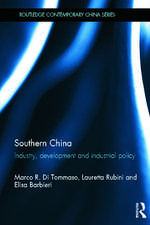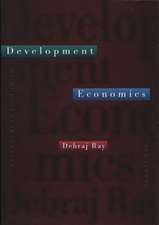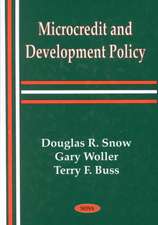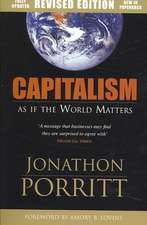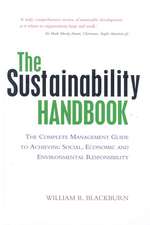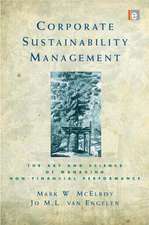Methodological Challenges in Nature-Culture and Environmental History Research: Routledge Environmental Humanities
Editat de Jocelyn Thorpe, Stephanie Rutherford, L. Anders Sandbergen Limba Engleză Hardback – 4 noi 2016
This book will be a valuable resource for those interested in environmental history and politics, sustainable development and historical geography.
Din seria Routledge Environmental Humanities
-
 Preț: 295.41 lei
Preț: 295.41 lei -
 Preț: 289.52 lei
Preț: 289.52 lei -
 Preț: 302.46 lei
Preț: 302.46 lei -
 Preț: 303.89 lei
Preț: 303.89 lei -
 Preț: 295.00 lei
Preț: 295.00 lei -
 Preț: 288.30 lei
Preț: 288.30 lei -
 Preț: 386.32 lei
Preț: 386.32 lei -
 Preț: 340.65 lei
Preț: 340.65 lei -
 Preț: 281.14 lei
Preț: 281.14 lei -
 Preț: 310.51 lei
Preț: 310.51 lei -
 Preț: 280.72 lei
Preț: 280.72 lei -
 Preț: 369.99 lei
Preț: 369.99 lei -
 Preț: 288.72 lei
Preț: 288.72 lei -
 Preț: 303.89 lei
Preț: 303.89 lei -
 Preț: 326.78 lei
Preț: 326.78 lei -
 Preț: 311.41 lei
Preț: 311.41 lei -
 Preț: 288.38 lei
Preț: 288.38 lei -
 Preț: 191.93 lei
Preț: 191.93 lei -
 Preț: 347.74 lei
Preț: 347.74 lei - 18%
 Preț: 1050.78 lei
Preț: 1050.78 lei - 20%
 Preț: 1046.91 lei
Preț: 1046.91 lei - 28%
 Preț: 821.14 lei
Preț: 821.14 lei -
 Preț: 446.53 lei
Preț: 446.53 lei - 18%
 Preț: 1001.84 lei
Preț: 1001.84 lei -
 Preț: 441.74 lei
Preț: 441.74 lei - 18%
 Preț: 1001.84 lei
Preț: 1001.84 lei -
 Preț: 369.95 lei
Preț: 369.95 lei -
 Preț: 415.24 lei
Preț: 415.24 lei - 18%
 Preț: 1001.07 lei
Preț: 1001.07 lei - 18%
 Preț: 1054.71 lei
Preț: 1054.71 lei - 18%
 Preț: 1000.87 lei
Preț: 1000.87 lei - 26%
 Preț: 819.09 lei
Preț: 819.09 lei - 18%
 Preț: 1171.19 lei
Preț: 1171.19 lei - 18%
 Preț: 1000.27 lei
Preț: 1000.27 lei - 16%
 Preț: 277.74 lei
Preț: 277.74 lei - 18%
 Preț: 1000.27 lei
Preț: 1000.27 lei -
 Preț: 403.91 lei
Preț: 403.91 lei - 15%
 Preț: 297.57 lei
Preț: 297.57 lei - 18%
 Preț: 1002.63 lei
Preț: 1002.63 lei - 18%
 Preț: 1053.16 lei
Preț: 1053.16 lei - 13%
 Preț: 297.99 lei
Preț: 297.99 lei - 18%
 Preț: 1004.20 lei
Preț: 1004.20 lei
Preț: 850.17 lei
Preț vechi: 1141.91 lei
-26% Nou
Puncte Express: 1275
Preț estimativ în valută:
162.70€ • 169.23$ • 134.32£
162.70€ • 169.23$ • 134.32£
Carte tipărită la comandă
Livrare economică 14-28 aprilie
Preluare comenzi: 021 569.72.76
Specificații
ISBN-13: 9781138956032
ISBN-10: 1138956031
Pagini: 342
Ilustrații: 13
Dimensiuni: 156 x 234 x 24 mm
Greutate: 0.59 kg
Ediția:1
Editura: Taylor & Francis
Colecția Routledge
Seria Routledge Environmental Humanities
Locul publicării:Oxford, United Kingdom
ISBN-10: 1138956031
Pagini: 342
Ilustrații: 13
Dimensiuni: 156 x 234 x 24 mm
Greutate: 0.59 kg
Ediția:1
Editura: Taylor & Francis
Colecția Routledge
Seria Routledge Environmental Humanities
Locul publicării:Oxford, United Kingdom
Public țintă
PostgraduateCuprins
Introduction:
1. Methodological Challenges Stephanie Rutherford, Jocelyn Thorpe and L. Anders Sandberg
Part I: Nonhuman Actors
2.Do Glaciers Speak? The Political Aesthetics of Vo/ice Sverker Sörlin
3. Experiencing Earth Art; or, Lessons from Reading the Landscape Marsha Weisiger
4. A Resounding Success? Howling as a Source of Environmental History Stephanie Rutherford
5. Animals as Historical Actors? Southwest China’s Wild Elephants and Coming to Know the Worlds they Shape Michael Hathaway
6. Dawns Ysbrydion 09.02.63/ Ghost Dance 09.02.63: Performance as the Instantaneous Precipitation of Traces Roger Owen
PART II: Decolonizing Research
7. Co-becoming Time/s: Time/s-as-Telling-as-Time/s Bawaka Country, including Sandie Suchet-Pearson, Sarah Wright, Kate Lloyd, Laklak Burarrwanga, Ritjilili Ganambarr, Merrkiyawuy Ganambarr-Stubbs, Banbapuy Ganambarr, Djawundil Maymuru, and Jill Sweeney
8. Dibaajimowinan as Method: Environmental History, Indigenous Scholarship, and Balancing Sources Lianne Leddy
9. Giving and Receiving Life from Anishinaabe Nibi Inaakonigewin (Our Water Law) Research Aimée Craft
10. Decolonizing Intellectual Traditions: Conducting Research and Telling our Stories in a ‘Mi’gmaq Way’ Fred Metallic
11. It Matters Where You Begin: A (Continuing) Journey Toward Decolonizing Research Jocelyn Thorpe
PART III: Senses and Affect
12. On Narrative, Affect and Threatened Ecologies of Tidal Landscapes Owain Jones and Katherine Jones
13. Eat Your Primary Sources! Researching and Teaching the Taste of History Ian Mosby
14. Political Effluvia: Smells, Revelations, and the Politicization of Daily Experience in Naples, Italy Marco Armiero and Salvatore Paolo De Rosa
15. Minuet as Method: Embodied Performance in the Research Process Sonja Boon
16. ‘To Know the Story is To Love It:’ Scientific Mythmaking and the Longing for Cosmic Connection Lisa Sideris
17. The Cycling Historian: Exploring Environmental History on Two Wheels Stephen Bocking
PART IV: Digital Research
18. Online Digital Communication, Networking, and Environmental History Sean Kheraj and K. Jan Oosthoek
19. A New Place for Stories: Blogging as an Environmental History Research Tool Dolly Jørgensen
20. Cultivating the Spirit of the Commons in Environmental History: Digital Communities and Collections Kimberly Coulter and Wilko Graf von Hardenberg
21. Remote Sensing: Digital Data at a Distance Sabine Höhler and Nina Wormbs
22. Walking with GPS: An Object Lesson Finn Arne Jørgensen
23. But Where Am I? Reflections on Digital Activism Promoting First Peoples’ Presence in a Canadian Heritage Village L. Anders Sandberg, Martha Stiegman and Jesse Thistle
1. Methodological Challenges Stephanie Rutherford, Jocelyn Thorpe and L. Anders Sandberg
Part I: Nonhuman Actors
2.Do Glaciers Speak? The Political Aesthetics of Vo/ice Sverker Sörlin
3. Experiencing Earth Art; or, Lessons from Reading the Landscape Marsha Weisiger
4. A Resounding Success? Howling as a Source of Environmental History Stephanie Rutherford
5. Animals as Historical Actors? Southwest China’s Wild Elephants and Coming to Know the Worlds they Shape Michael Hathaway
6. Dawns Ysbrydion 09.02.63/ Ghost Dance 09.02.63: Performance as the Instantaneous Precipitation of Traces Roger Owen
PART II: Decolonizing Research
7. Co-becoming Time/s: Time/s-as-Telling-as-Time/s Bawaka Country, including Sandie Suchet-Pearson, Sarah Wright, Kate Lloyd, Laklak Burarrwanga, Ritjilili Ganambarr, Merrkiyawuy Ganambarr-Stubbs, Banbapuy Ganambarr, Djawundil Maymuru, and Jill Sweeney
8. Dibaajimowinan as Method: Environmental History, Indigenous Scholarship, and Balancing Sources Lianne Leddy
9. Giving and Receiving Life from Anishinaabe Nibi Inaakonigewin (Our Water Law) Research Aimée Craft
10. Decolonizing Intellectual Traditions: Conducting Research and Telling our Stories in a ‘Mi’gmaq Way’ Fred Metallic
11. It Matters Where You Begin: A (Continuing) Journey Toward Decolonizing Research Jocelyn Thorpe
PART III: Senses and Affect
12. On Narrative, Affect and Threatened Ecologies of Tidal Landscapes Owain Jones and Katherine Jones
13. Eat Your Primary Sources! Researching and Teaching the Taste of History Ian Mosby
14. Political Effluvia: Smells, Revelations, and the Politicization of Daily Experience in Naples, Italy Marco Armiero and Salvatore Paolo De Rosa
15. Minuet as Method: Embodied Performance in the Research Process Sonja Boon
16. ‘To Know the Story is To Love It:’ Scientific Mythmaking and the Longing for Cosmic Connection Lisa Sideris
17. The Cycling Historian: Exploring Environmental History on Two Wheels Stephen Bocking
PART IV: Digital Research
18. Online Digital Communication, Networking, and Environmental History Sean Kheraj and K. Jan Oosthoek
19. A New Place for Stories: Blogging as an Environmental History Research Tool Dolly Jørgensen
20. Cultivating the Spirit of the Commons in Environmental History: Digital Communities and Collections Kimberly Coulter and Wilko Graf von Hardenberg
21. Remote Sensing: Digital Data at a Distance Sabine Höhler and Nina Wormbs
22. Walking with GPS: An Object Lesson Finn Arne Jørgensen
23. But Where Am I? Reflections on Digital Activism Promoting First Peoples’ Presence in a Canadian Heritage Village L. Anders Sandberg, Martha Stiegman and Jesse Thistle
Recenzii
'Overall, the book is a innovative, delightful and thought-provoking piece that will be of interest to any researcher in environmental history. It provides a great starting point for scholars looking to improve on or escape from archival research, and reading it will certainly stir their imagination. I would also argue that the book may be of relevance to the wider community of environmental scholars looking for compelling and engaging methods to teach or communicate environmental research.'
Ricardo Alexio Correia ,Federal University of Alagoas, Brazil, University of Oxford, UK, Environment and History journal
Ricardo Alexio Correia ,Federal University of Alagoas, Brazil, University of Oxford, UK, Environment and History journal
Descriere
This book faces the challenges and possibilities of conducting cultural and environmental history research today. Disciplinary commitments certainly influence the questions scholars ask and the ways they seek out answers, but some methodological challenges go beyond the boundaries of any one discipline. The book examines: how to account for the fact that humans are not the only actors in history yet dominate archival records; how to attend to the non-visual senses when traditional sources offer only a two-dimensional, non-sensory version of the past; and how effectively to use sources and means of communication made available in the digital age.
